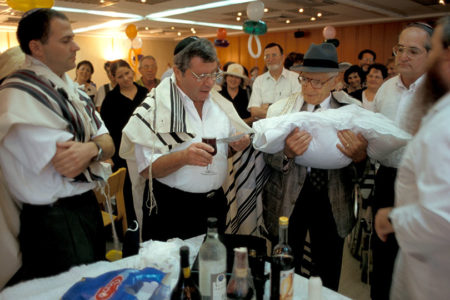Eye on the Middle East Jul/Aug 2013
Moral equivalence is a tricky device often used by people who want to remove the focus from an obvious wrong and put it somewhere else. Commentary on the Arab-Israeli conflict is rife with such deception, and writers and politicians often ply moral equivalence as a tool of their trade.
U.S. Secretary of State John Kerry used it in April while visiting Turkey a week after the Boston Marathon bombings. He compared the victims of the Boston terrorist attack to the Hamas supporters killed by Israelis aboard the Turkish ship Mavi Marmara in 2010.
The Mavi Marmara was one of six ships in a flotilla attempting to break Israel’s blockade of Gaza. It claimed to be carrying humanitarian supplies. The blockade was designed to prevent jihadists from bringing weapons to Gaza that Hamas would use against Israel. When the Israelis boarded the ship, they were immediately attacked with iron bars, chairs, and knives.
Reaction to Kerry’s comments came swiftly. Republican Jewish Coalition Executive Director Matt Brooks lamented, “It is unconscionable to compare the loss of life resulting from an act of self-defense to the results of cold-blooded, premeditated murder by terrorists.”
Israeli Deputy Defense Minister Danny Danon said, “It is never helpful when a moral equivalency is made confusing terrorists with their victims.”
Labor Party Knesset Member Nachman Shai said Kerry had “completely distorted reality….In Boston terrorists killed civilians. On the Mavi Marmara ship, terrorists were killed.”
Kerry was in Turkey as part of a coordinated task by U. S. President Barack Obama’s administration to repair relations between Israel and Turkey. In March, President Obama prodded Israeli Prime Minister Benjamin Netanyahu to apologize for “operational errors” that had possibly contributed to the deaths aboard the Mavi Marmara. Israel did not apologize for the actual raid, which the UN said was carried out in accordance with international law.
What exactly was the Mavi Marmara situation? Since the 2005 Gaza War, Israel set up an internationally legal, naval blockade in the international waters of the Mediterranean Sea. The blockade is used to prevent arming Hamas, the terrorist organization that controls Gaza and has launched thousands of missiles into Israeli cities. Hamas has routinely killed innocent Israeli citizens, damaged property, and inflicted terror on an entire generation of Israeli young people. Controlling Gaza’s airspace and borders, both land and sea, is imperative to Israel’s security.
Before the Turkish vessels set sail, Israel warned them not to come. Israel was already providing humanitarian aid to Gaza by sending tons of food and medicine on a regular basis. Israel knew that among the “humanitarians” on board the flotilla were members of Insani Yardim Vakfi, the Turkish Humanitarian Relief Foundation, a radical Islamic organization linked with Hamas.
Video footage clearly shows that the flotilla’s mission was military, not humanitarian. As soon as the Israeli soldiers were lowered onto the ships, they were attacked. The struggle and ensuing fight left nine Turkish passengers dead and 14 Israeli soldiers injured. Turkey claimed Israel used excessive force; but had the Israelis not acted as they did, they likely all would have been killed.
In the wake of the incident, Turkey withdrew its high-level diplomats from Israel and froze deals with Israel’s military. What was once a cordial, even militarily strategic friendship became a breakup in need of repair.
Kerry’s ill-suited comparison failed to point out a major difference: People in Boston who came to watch a race were maimed and murdered by terrorists. Those who died on the flotilla were terrorists themselves, on their way to maim and murder Israelis.
When will Washington get it?






